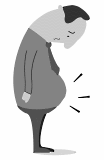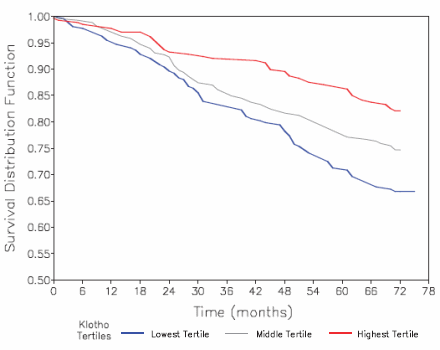|
Stressed out strength athletes take longer to recover post-workout
Strength athletes under long-term psychological stress need more days for their muscles to recover after training than do athletes who are not under stress. Whether you've got heavy exams coming up, your company is struggling financially, or you are caring for someone who is seriously ill, chronic psychological stress delays muscle recovery. Sports scientists from the University of Texas at Austin have published hard data in the Journal of Strength & Conditioning Research.
Stress
Long-term psychological stress is not good for athletes. Stress boosts the production of muscle-damaging hormones and factors such as cortisol and myostatin, and inhibits the production of testosterone. Chronic stress also deregulates the immune system, and as a result you're more susceptible to disease or illness.
On the basis of our current knowledge you'd expect that psychological stress delays recovery after strength training, but until now there had been no studies that show this conclusively. So Matthew Stults-Kolehmainen decided to examine the effect of chronic psychological stress on post-strength-workout recovery.
Leg training
Stults-Kolehmainen did an experiment on 9 female and 22 male students, whom he asked about the amount of psychological stress in their lives, using the Perceived Stress Scale.
He then got the students to train their legs using a leg-press machine. They did 6 sets to failure. In the four days after the workout Stults-Kolehmainen measured the amount of maximal isomeric force the students were able to develop on the leg press. That resulted in the figure below.

Recovery
The students with the least psychological stress [MPPS = 9] were capable after just one day of developing the same maximal isomeric force as they had been before the training. Three days/72 hours later their maximal isomeric force was greater than it had been before they started the training.
The students under the most psychological stress [MPPS = 19] had still not recovered their pre-training maximal isomeric force four days/96 hours afterwards.
Conclusion
"These data provide evidence that stress has an impact on recovery from heavy bouts of training", the researchers write. "Those reporting high levels of stress take several more days to recover than those reporting less stress."
"This robust effect likely has practical significance for those facing the dual challenges of chronic mental strain and strenuous exercise, which suggests that those engaging in strenuous strength training should 'exercise caution when stressed'. Consequently, it may be prudent for such individuals to monitor recovery and prescribe more time for recuperation during periods of inordinate mental stress."
Source:
J Strength Cond Res. 2014 Jul;28(7):2007-17.
More:
Relaxation exercise halves cortisol level 08.07.2009
Stress course lowers athletesí cortisol level 13.06.2009
Stressed out? Your cortisol level will explode after training 11.06.2009
Archives:
Resistance Training
Psychology
Cortisol
|





